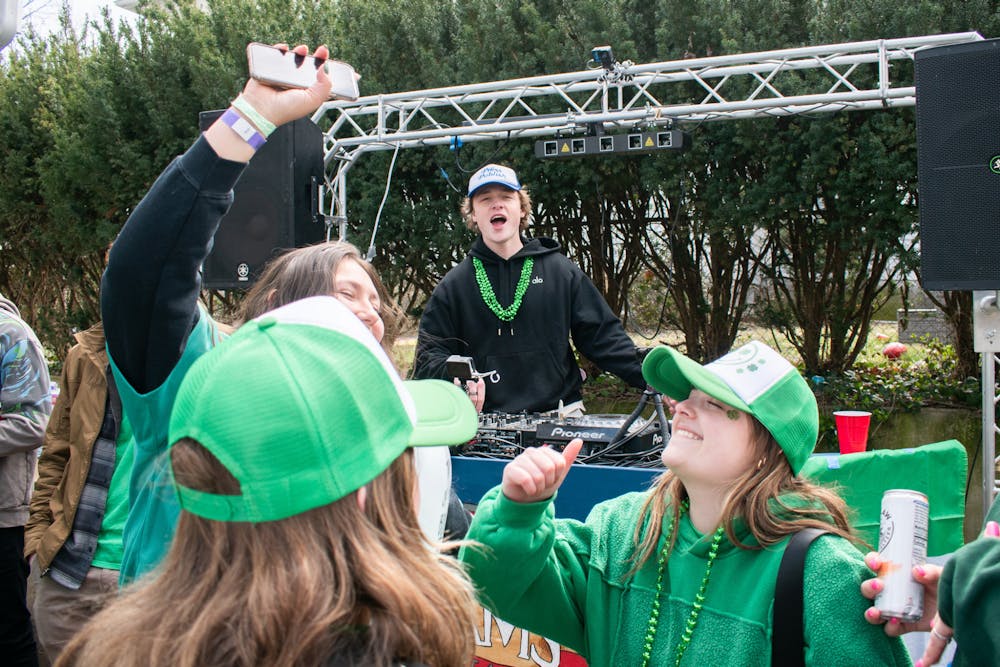Over 50 chapters of fraternities and sororities are officially recognized at Miami University. Due to the heavy impact that Greek life has on campus, students are no strangers to the weekend “’80s in Aspen” or “Margaritaville” themed frat parties.
At these parties, you will find smoke machines filling the room, red, green and blue lasers flashing over your head and a full DJ setup that keeps people coming back for more.
Junior biology major Caleb Theis has the role of “frat DJ” in his fraternity, Pi Kappa Phi. Theis has performed sets at dozens of parties for his chapter, where he loves to soak up the atmosphere of the nightlife on campus.
“The best part of DJing is definitely people-watching,” Theis said. “It's so cool to look out into the crowd and see people vibing to a song that you put on, even if it’s just one or two people.”
For larger parties during events such as Green Beer Day, you may find a hired DJ who has traveled far to come to Miami. To book these DJs for parties, executive members of the fraternity will use a new networking platform for DJs called BeatGig to book performers.
BeatGig is new to the scene, but it provides access to almost any DJ in the country. You can book them at a flat rate, and an agent will organize the necessary travel and accommodations, making the process seamless.
One of the best features of this platform is that anyone can join it. This allows for a much broader display of performers to appear on campus. Some of the artists available include bigger names such as Notion and smaller artists who are performing for free to get their names out there.
Economic constraints are one of the main reasons you are more likely to find a fellow brother DJing at a function rather than a more mainstream DJ on a typical Saturday night. For a lesser-known artist, the going rate is between $500 and $1,000, and for some bigger artists, it can be upwards of $2,000 for an hour or two.
Instead, fraternities have a few members who have learned their skills through friends, YouTube videos, TikToks and simple phone apps. More often than not, these DJs go unpaid. Regardless, partygoers are never disappointed by the brothers behind the boards.
“I honestly don’t practice at all, and I don't expect to do well at the party,” Theis said. “Once I got the basics down, I noticed that people don’t tend to notice when there is a mess up, so it’s more about just playing the songs that I think will get the people at the party the most into it.”
The primary motivation for fraternity members to learn to DJ is the thrill of playing new mixes, entertaining a crowd and spending time with their closest friends, rather than any monetary compensation.
“The main thing that I have taken away from all of this is that anyone at any skill level can start to DJ, even if you don’t have all the equipment, just start practicing,” Theis said.




